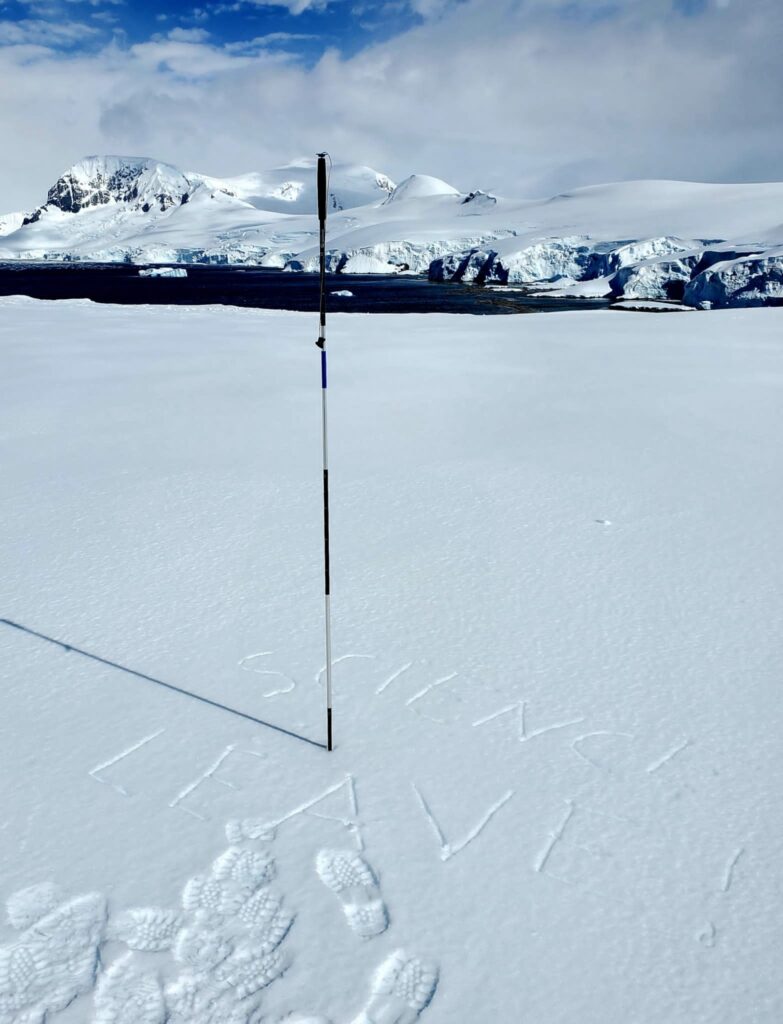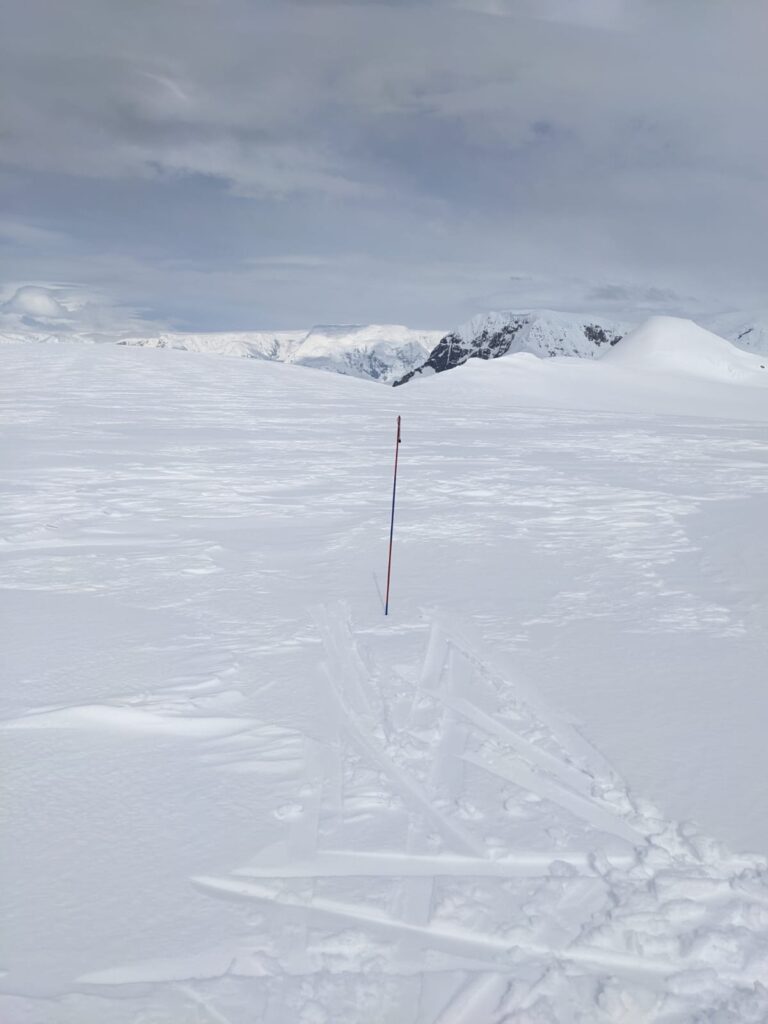It snows on the Antarctic Peninsula. (Still :))
Snowfall is monitored at and near some of the research stations located on the South Shetland Islands and the western Antarctic Peninsula.
Satellites monitor Earth from their orbits. Simplistically, the images they transmit convey information about the top layer of clouds and the surface of Earth. But snowfall cannot be determined by remote sensing techniques and owing to its hostile climate, the high ground of the Antarctic Peninsula is particularly devoid of observations.
Why does this matter?
The behaviour of the large ice sheets is important for all of us, as their melting alone would result in a 60 m rise in sea-level. You may have heard about the deep, widening, fractures that have been identified in Thwaites Glacier (western Antarctica), the demise of which would unleash vast amounts of ice, currently resting on land, into the sea, potentially causing 65 cm of sea-level rise (A Witze).
To make such predictions, the main processes that affect the dynamics of ice sheets have to be considered. These include the balance between snowfall and surface meltwater runoff, accelerated melting beneath the ice sheets, ice flow towards and discharge into the ocean (dynamical mass loss), and the interaction with warming ocean waters on the undersides of floating ice shelves and glacier tongues, as well as the influence of isostatic rebound (see this summary for an explanation).
Prof Michiel van den Broeke, at Utrecht University in the Netherlands and his team use data from remote sensing, ground-based automated weather stations and increasingly sophisticated and detailed computer models to reconstruct, understand and predict past, present and future climate and the mass balance of the large ice sheets of Greenland and Antarctica.
However, the accurate projection of sea-level rise is hampered by major uncertainties related to the possibility for major ice sheets to suffer irreversible loss of ice because of the warming climate.
To reduce the uncertainties associated with model predictions, each of these processes and the parameters that determine their direction and rate of progress merits investment in more observation and data collection. In this context, in situ observations remain essential to validate remote sensing data and to develop, evaluate and improve models of regional climate, ice dynamics and subglacial hydrology.
Emplaced snow accumulation poles at the Portal Point basecamp (left), and at Cache 1 (right). Any snow accumulation will be measured (depth, volume) upon return of the team. Photos (c) Antarctic Quest 21.
The expedition team will emplace some 30 snow deposition poles on their route from Portal Point across the Forbidden Plateau and determine the net accumulation of snowfall on their return to each pole some days or weeks later. The first two poles have been emplaced at Portal Point and the location of their first cache, at some 350 m altitude on their way up to the Forbidden Plateau.
Get live updates from the ice on Facebook and Instagram.

“Dr Charlotte Braungardt is a freelance environmental scientist working through her consultancy Challenging Habitat. She is the scientific advisor for the Antarctic Quest 21 expedition.”
Many thanks to all of our friends, sponsors and supporters who are backing the Antarctic Quest 21 expedition, including:
NAAFI Team Army/Team Ethos Costain Group PLC BetterYou Ltd Applied Satellite Technology LtdGreencastle Consulting Klättermusen AB Fjellpulken AS Polar Latitudes Clean Planet Energy PlanetLabs.Earth LikeToBe.org LGfL Devon and Plymouth Chamber of Commerce Royal Geographical Society Prof Dr Ger Graus OBE Phil Carrotte Tim Ellis Twin Science & Robotics Verofax Limited Alpenverein Osterreich Beyond Exploration Shackleton Whisky Paul Read Martin Holland, FRGS USNAR Polar Science and Technology Program The Ulysses Trust Expedition Base Camp Anjuli Selvakumaran Elliot Brown Watches University of Plymouth Utrecht University The University of Manchester Durham University University of Tasmania Challenging Habitat AndrewSmedley PippaWhitehouse Colonel Paul John Edwards MBE The Honourable Alexandra Shackleton Lieutenant General Richard Nugee CB CVO CBE AngelaMilne Simon Ussher Nigel Marley MichielvanDenBroeke ImogenNapper Emily Whitehead Kate Retallick Claire Grogan FRGS Charlotte Braungardt

